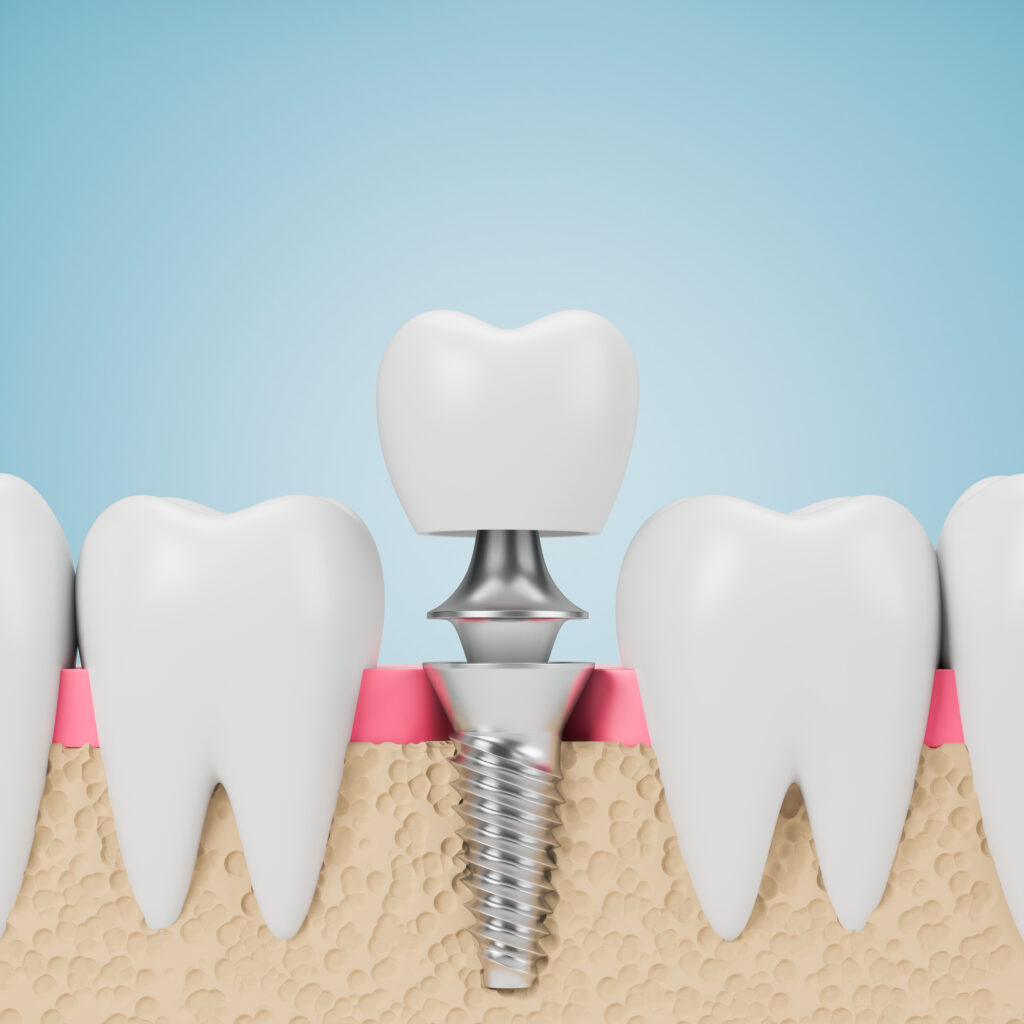
Are you considering getting dental implants but feeling hesitant about the cost? You’re not alone. Dental implants can be a significant investment, and it’s natural to wonder why they come with such a hefty price tag. In this blog post, we’ll explore the reasons behind the expense of dental implants and help you understand their importance in restoring your smile and oral health. So, let’s dive in and uncover the secrets behind those pearly whites!
The importance of dental implants
When it comes to dental health, we all know how crucial it is to maintain a beautiful smile. Dental implants play a vital role in achieving that goal by providing a long-lasting solution for missing teeth. But their importance goes beyond just aesthetics.
First and foremost, dental implants are designed to function like natural teeth. They help restore your ability to chew and speak properly, allowing you to enjoy your favorite foods without restrictions or discomfort. With implants, you won’t have to worry about avoiding certain foods or feeling self-conscious about speaking clearly.
Additionally, dental implants serve as anchors for artificial teeth or dentures. This stability ensures that your replacement teeth stay securely in place, eliminating any concerns about slippage or movement while eating or talking. You can confidently engage in social activities and conversations knowing that your smile looks and feels completely natural.
Moreover, dental implants contribute significantly to maintaining the overall structure of your jawbone and facial features. When you lose a tooth, the surrounding bone begins to deteriorate over time due to lack of stimulation from chewing forces. Implants prevent this bone loss by acting as artificial tooth roots that stimulate the underlying jawbone, preserving its integrity and preventing further deterioration.
The importance of dental implants extends far beyond enhancing your appearance alone; they improve functionality, provide stability for replacement teeth/dentures, promote oral health by preserving bone structure – all of which ultimately lead to an enhanced quality of life! So if you’re considering getting dental implants but hesitant about the cost involved – remember their significant benefits make them worth every penny!
What factors contribute to the high cost?
When it comes to dental implants, one question that often arises is why they are so expensive. Well, there are several factors that contribute to their high cost. Let’s delve into some of these factors and gain a better understanding.
The expertise required for performing dental implant procedures plays a significant role in driving up the costs. Professional dentists with specialized skills and knowledge ensure that implants are implanted almost for life. They undergo extensive training and invest in continuing education to stay updated on the latest techniques and advancements in implant dentistry.
Another factor contributing to the expense is the use of high-quality materials. Dental implants are typically made from titanium or zirconia, both known for their durability and biocompatibility. These materials have undergone rigorous testing to ensure they can withstand the forces exerted during chewing and speaking while seamlessly integrating with natural bone.
The procedure itself also adds to the overall cost. It involves multiple steps such as consultation, imaging, surgical placement of implants, abutment placement, and finally attaching custom-made crowns or bridges. Each step requires precision instruments, sterile environments, and skilled professionals working together seamlessly.
Furthermore, post-operative care is crucial for successful outcomes but adds an additional cost as well. Regular follow-up visits allow dentists to monitor healing progress and address any complications promptly if they arise.
Additionally insurance coverage (if available) varies widely depending on your insurance plan’s terms regarding dental implant procedures.
Many plans may offer limited or no coverage at all for dental implants due to considering them elective rather than necessary treatment options.
Lastly quality assurance standards play a key role in elevating costs since reputable clinics adhere strictly which accounts for higher overheads compared to lesser regulated countries where cheap alternatives lure people.
However it’s essential not to compromise on quality when dealing with something as important as oral health.
The high cost of dental implants can also be attributed to the time and effort required for the procedure. Implant placement is not a quick fix, and it can take several months to complete the entire process. This includes waiting for the implant to fuse with the jawbone (known as osseointegration), which is crucial for its long-term success. The multiple appointments, materials, and labor involved all contribute to the overall cost.
Lastly, location also plays a significant role in determining the cost of dental implants. In areas where there is a high demand for cosmetic dentistry or a limited number of specialized dentists, prices tend to be higher.
Several factors contribute to the high cost of dental implants, including expertise, quality materials, multiple procedures involved, post-operative care, insurance coverage (or lack thereof), quality assurance standards, time and effort required, and location. Despite their high cost, dental implants offer long-term benefits and are considered a worthwhile investment in one’s oral health and overall well-being. It’s essential to consult with a reputable dentist who can provide transparent pricing details and ensure high-quality treatment for successful outcomes.
Understanding the Procedure and Materials
When it comes to dental implants, understanding the procedure and materials involved can help shed light on their high cost. Dental implant surgery is a complex process that requires skill and precision. The first step involves a thorough examination of your oral health to determine if you are a suitable candidate for implants.
Once deemed eligible, the dentist will then proceed with placing the titanium post into your jawbone. This serves as an artificial root for the replacement tooth or teeth. It is crucial that this step is done correctly to ensure long-term success.
The next stage involves osseointegration, where the bone fuses with the implant over several months. After this period of healing, an abutment is attached to connect the implant with the crown –the visible part of your new tooth.
As for materials, dental implants are typically made from biocompatible titanium due to its durability and ability to fuse with bone tissue effectively. Additionally, porcelain or ceramic crowns are used for their natural appearance and strength.
All these steps require specialized training, expertise, and state-of-the-art equipment which contribute to their overall cost. Remember that professional dentists will ensure they’re implanted almost for life while opting for cheap alternatives like “Turkey teeth” may end up being a fiasco in terms of quality and longevity!
Insurance Coverage for Dental Implants
When it comes to dental implants, the cost can be a major concern for many patients. However, understanding your insurance coverage can help alleviate some of the financial burden. While dental insurance typically covers routine procedures like cleanings and fillings, coverage for more complex treatments such as dental implants may vary.
It’s important to review your policy carefully and consult with your insurance provider to determine what is covered under your plan. Some plans may cover a portion of the implant procedure, while others may not provide any coverage at all. Additionally, there may be certain restrictions or limitations on what types of implants are covered.
Keep in mind that even if your insurance does cover dental implants, there may still be out-of-pocket expenses involved. This could include deductibles, co-pays, or fees for any additional procedures or materials required during the implant process.
If you find that your current insurance plan does not provide adequate coverage for dental implants, you might consider exploring other options such as supplemental dental insurance or flexible spending accounts (FSAs) which can help offset some of the costs.
Remember that every individual’s situation is unique when it comes to insurance coverage, so it’s crucial to thoroughly research and understand how your specific policy applies to dental implant treatment. By having a clear understanding of what is covered and what isn’t before proceeding with the procedure, you can better manage the financial aspect of getting dental implants.
While obtaining proper insurance coverage for dental implants can certainly help ease some of the financial burden associated with this treatment option ,this should never discourage anyone from seeking professional care from qualified dentists.
The cheap alternative offered by places like Turkey where dubious practitioners could leave you with fiasco teeth is definitely not worth compromising on quality.
Never compromise on quality when it comes to something as important as oral health.
Choosing professionals who offer high-quality services might mean a higher upfront cost, but it will ensure long-term success and avoid costly complications.
Tips for Managing the Cost of Dental Implants
1. Research and Compare: Take the time to research different dental implant providers and compare their prices. Look for reputable clinics with experienced dentists who specialize in dental implants. While it may be tempting to go for a cheaper option, remember that quality should be your top priority when it comes to such a significant investment in your oral health.
2. Consider Financing Options: Many dental practices offer financing plans or payment options that can help make the cost of dental implants more manageable. Speak with your dentist about any available options or inquire if they work with third-party financing companies.
3. Check Insurance Coverage: Although many insurance plans do not cover the full cost of dental implants, some may offer partial coverage or reimbursements for certain aspects of the procedure. Contact your insurance provider to see if you are eligible for any benefits and what expenses might be covered.
4. Plan Ahead: If you know you will need dental implants in the future but cannot afford them at present, consider setting up a savings plan specifically designated for this purpose. By saving gradually over time, you can eventually accumulate enough funds to undergo the procedure without straining your finances.
5. Seek Out Discounts or Special Offers: Some dental clinics may run promotions or offer discounts on specific services, including dental implants. Keep an eye out for these opportunities and ask your dentist if there are any current offers available.
Remember, while cost is undoubtedly an important factor when considering dental implants, prioritizing quality and long-term results should always come first! Professional dentists will ensure they’re implanted almost for life— the cheap alternative is the fiasco of Turkey teeth. Invest wisely in your smile by choosing reputable professionals who prioritize patient care above all else!




